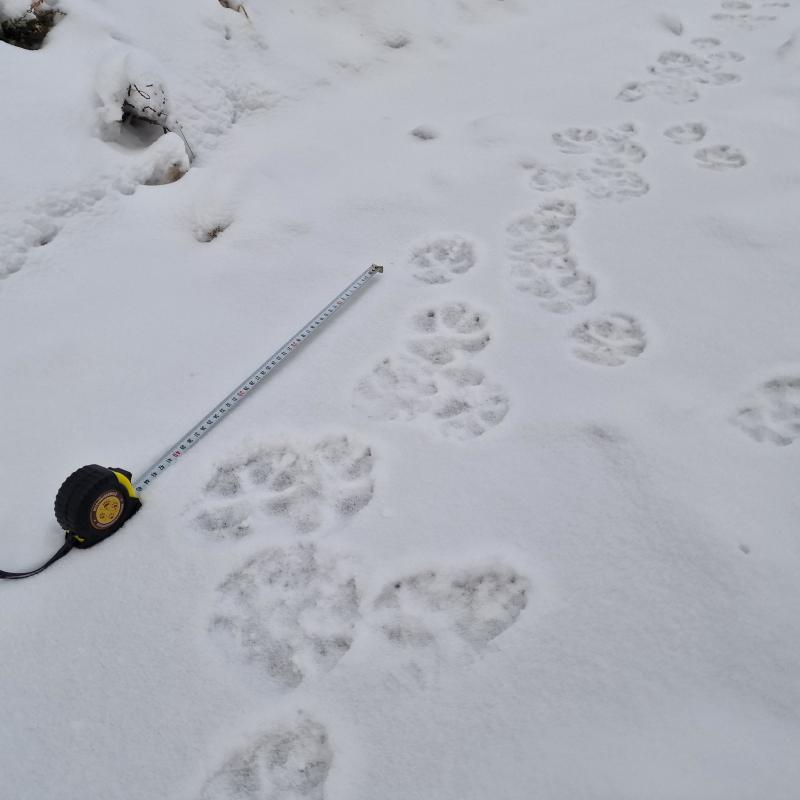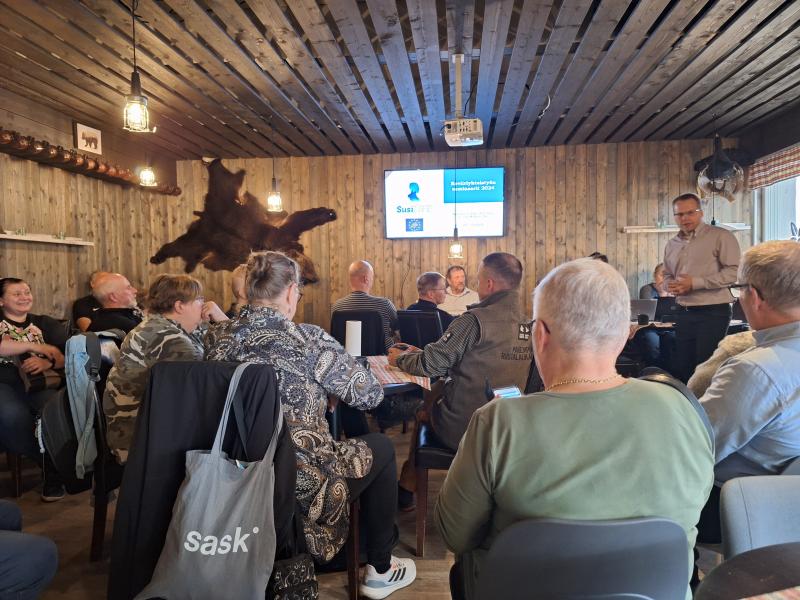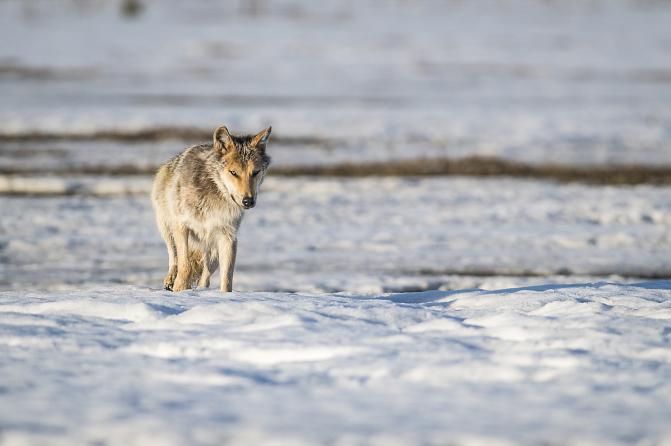Interaction and cooperation in wolf regions
Cooperation and dialogue between citizens, large carnivore observers (LCOs) and the authorities reduces fears, concerns and wolf depredation. Cooperation helps spread information about the wolf population and good practices on how to protect domestic animals.
There are already networks in Finland that convey information about wolves locally to researchers and the authorities, and vice versa. These networks include the network of large carnivore observers (LCOs) and territory cooperation groups.
LCOs are local trained volunteers, usually hunters, who check sightings of large carnivores made by citizens and register them in the Tassu system. Tassu sightings are the cornerstone of large carnivore population estimates. In addition, sightings have an impact on decisions on school buses, for example. There are some 2,400 LCOs in Finland.
The cooperation groups of wolf territory areas bring together local representatives of municipalities, game management associations and nature conservation associations, as well as cattle farmers, to discuss wolf-related matters. The groups share an updated overview of the wolf situation, plan local measures and promote a dialogue between game administration, research and citizens.
Goal:
Strengthening the network of LCOs by updating related training and developing the activities of the territory cooperation groups.
Measures:
- The training material for LCOs was updated and made openly available online.
- New work instructions were prepared for the territory cooperation groups, and the groups were helped to build networks with local parties. In addition, annual seminars were held for the territory cooperation groups.
Results
Training for large carnivore observers (LCOs) was updated and made openly available
LCOs require broad expertise. They must have diverse knowledge of large carnivores as species, the ability to make sightings, and an understanding of coexistence between large carnivores and people. The training provided for LCOs was updated to meet modern standards. The basic course was made openly available on the Riistainfo.fi website.
From now on, new LCOs are required to complete the basic course online or participate in a course organised by the Finnish Wildlife Agency. Those already working as LCOs were also encouraged to study the material to refresh their skills. Based on feedback, the course was considered useful, even though its content and usability could be developed further.
New themes were added to the training material, including communication in the role of a LCO, identifying domestic animal losses caused by large carnivores, and DNA sample collection.
During the project, more than 700 people completed the online training.
The project actively communicated the network of LCOs on social and regular media, and reminded citizens of the importance of reporting sightings.
Territory cooperation groups were given work instructions and up-to-date information about wolves
The territory cooperation groups are like their members. Cooperation has become established in many groups over the years, with different parties knowing each other and being engaged in a varied dialogue. The groups have prepared and implemented a broad range of measures. For example, they have written notifications to local papers, arranged meetings, prepared statements, and shared information about the prevention of losses caused by large carnivores.
The updated work instructions describe how territory cooperation groups can be established in new wolf territories, act as a framework for the groups, offer examples of measures and promote information exchange.
Annual seminars were held for the groups, with representatives of the project visiting the groups to discuss current wolf themes and hear what the groups had to say. The seminars were given positive feedback.




